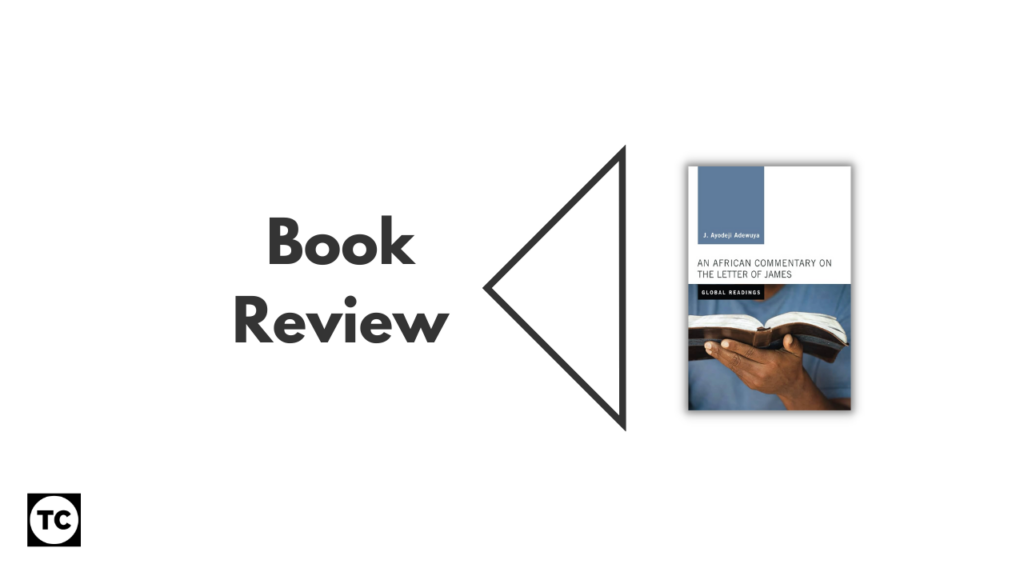Reviewing commentaries is a tricky business – particularly for me as a generalist, and an in-publisher editor of commentaries! I tend to offer my review based on the format and content of the volume, and its utility or otherwise to preachers and pastors. Occasionally I’ll digress into particularly theological or stylistic quirks.

This is a new commentary in what appears to be a germinating series from Wipf & Stock – edited by David A. deSilva (who has written what looks like the only other entry, on Galatians) – dedicated to bringing non-Western voices into the global academic conversation around the Bible (Which remains in general heavily skewed). At 106 pages, this is a very slim volume – compared to Doug Moo’s 240 page entry in the Tyndale series, let alone a heavier weight commentary – and when one factors in the seven pages of introduction and five pages of bibliography, this is a commentary that is really under 100 pages. That is not a bad thing in itself, but in my view sadly Adewuya doesn’t make the most of his space – giving big chunks to quotes from other sources, to mixed success.
In terms of format, the commentary treats the book of James chapter by chapter, with a short introduction to the chapter (less than a page, normally, followed verse-by-verse commentary that ranges in focus from single verses to more than ten verses at a time, depending on the pericope. It is an explicitly Christian commentary, drawing readers to the heart of James, with observations like “We never stop being disciples regardless of the position we occupy in the church” (p. 9); “James… is concerned about the entire character of the Christian” (p. 19).
In terms of the particular emphases that make this an African commentary on James, I found it mixed. Whilst it is always interesting to hear cultural artefacts (Songs, sayings, stories and so on) from other cultures, it was perhaps the proverbs from Yoruba and other tribal cultures which were most pertinent, and shed fresh light on the text of James. Practically speaking, self-aware reflection on the challenges of wealth and poverty (in the chapter on James 1:1-27) led to useful summaries such as “It offers a lesson to both the poor and the rich to avoid the temptation that either having or not having wealth brings” (p. 23), as well as the observation that “Christians in today’s world must realize that anger, retribution, and vindictiveness will not bring about or promote the kingdom of God which we claim to be seeking” (p. 27). I also appreciated Adewuya’s comments on prayer: “James’s emphasis on righteous prayer is a window into understanding both the prayerlessness and the powerlessness of our day… If a hurried prayer life is what characterizes our fellowship with God, then we are unlikely to grow in the spiritual maturity we need to serve God” (p. 98).
Overall, though, this commentary does little new, and whilst there are some useful observations that come from Adewuya’s particular African context (he does not, of course, claim to speak for a whole continent of cultures and countries) there is also an (in my view) unnecessary abundance of quotations from secondary literature, a substantial amount of which I felt added little to the commentary. I think the author could have generated a commentary of the same length with more reflection on the wisdom tradition of James, Proverbs, and the various cultural proverbs he alludes to and engages with – and this would be something that would have made this a recommended commentary for preachers, in my view. As it is, this is a workmanlike but rather underwhelming short commentary on James, which will stay on my shelf due to its small footprint, and will probably come off and be referenced when I’m looking for an ‘African’ perspective on the letter of James.
3/5
I’d recommend the aforementioned Moo TNTC, and have also been impressed by Aida Besancon Spencer’s entry in the Kregel Exegetical Library, as well as the Zondervan Exegetical Commentary on the New Testament volume, by Mariam J. Kamell Kovalishyn and Craig Blomberg. Part of my disappointment with this commentary by Adewuya is that I really rather enjoyed his ‘Holiness in the Letters of Paul‘.
Leave a Reply